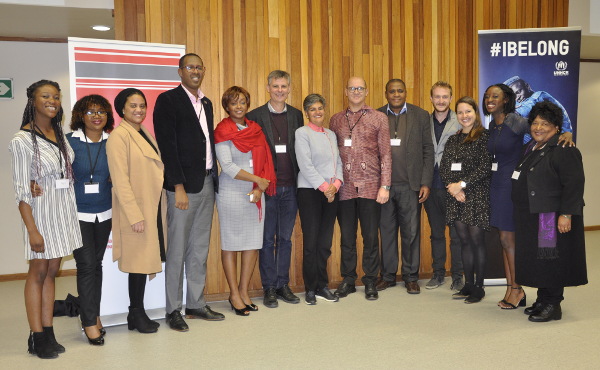Ten million people in the world have no nationality. In 2014, this led the United
Nations High Commissioner for Refugees (UNHCR) to launch the #ibelong
campaign to end
statelessness.
Recently,
Stellenbosch University (SU) also tackled this issue when its Unit of
Law and Religion in the Beyers Naudé Centre for Public Theology, Faculty of
Theology, hosted a conference on the role of faith-based organisations in
Southern Africa to protect stateless persons and prevent statelessness. The
event was arranged in collaboration with the Southern Africa regional office of
the Rosa Luxemburg Foundation (RLF) as well as the UNHCR’s regional representation
for Southern Africa.
SU’s involvement stemmed from a general feeling that a
critical voice missing in the debate on statelessness was from academia. With
statelessness being an issue that calls for extensive research and advocacy, transdisciplinary
academic research will go a long way towards positively influencing policy. “This
is an opportunity to work together to address the challenge of statelessness on
our continent,” said Prof Reggie Nel, SU’s Dean of Theology. “Innovative solutions need
to be found to look after the vulnerable in our society. Faith communities too have
a role to play, alongside colleagues from different disciplines and civil
society.” The aim was to illustrate that religious communities can be spaces of
inclusion, protection and solidarity for the voiceless, the silenced, and particularly
the stateless.
According to Mr Jörn Jan Leidecker, RLF regional director,
existing notions of space and citizenship needed to be challenged, recognising
that the notion of being a foreigner is part of our DNA and that, in a sense,
we are all wandering strangers. “We need new and innovative ways of thinking
about a sustainable future for us all, but particularly for the vulnerable,
silenced and children,” he said. In her presentation, Mrs Melanie Khanna, head
of the statelessness section at UNHCR in Geneva, said that individuals should
have rights independent of nationhood. “Citizenship inter alia implies having
rights that fall under the broader debate of social justice.”
Poignant
personal accounts by Caroline Masuki and Sara Allelulia framed a call to action
and partnership to address statelessness as a social justice issue. Recounting
their own challenges in this regard, Masuki and Allelulia highlighted the need for
greater awareness, for evidence-based cases to be put to states, and for
churches to check that births have been registered when babies are baptised.
Prof Mary-Anne Plaatjies-Van Huffel, head of the Unit of Law and Religion, said:
“We should affirm that every human being has the right to life, liberty and
security; the right to education, equal protection under the law, and to be
free from slavery and torture; the right to freedom of thought, conscience and
religion, freedom of opinion and expression, as well as the right to a
nationality.”

Mrs
Caroline Masuki, Mrs Sindisiwe Moyo, LL.B., Scalabrini Centre of Cape Town, Ms
Aamina Petersen, LL.M. (Candidate), UWC, Prof Benjam Mezmur, ACRWC and UWC, Mrs
Olivia Mugambi-Spielmann, UNHCR Zimbabwe, Prof Robert Vosloo (Systematic
Theology, Stellenbosch University), Mrs Melanie Khanna, Head: Statelessness
Section, UNHCR Geneva, Prof Reggie Nel, Dean: Faculty of Theology,
Stellenbosch University, Prof Xolile Simon (Missiology, Stellenbosch
University), Mr Gert Bruininkx, UNHCR Pretoria, Ms Liesl Muller, LL.M.
(Candidate), Lawyers for Human Rights, Mrs Sara Allelulia, Prof Mary-Anne
Plaatjies-Van Huffel, Stellenbosch University

